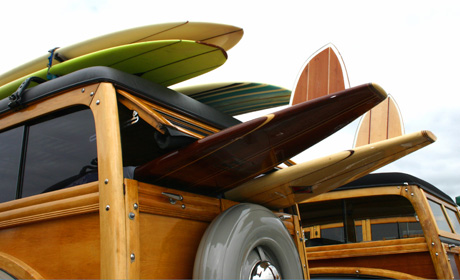

Next time you go to the beach, take a few minutes, look around and notice how many activities and sports are happening around you. The last few years have seen an explosion in the variety of equipment available to Australians to participate in water sports meaning more people getting into the water! However, having the right gear can also mean the difference between a fantastic day on the water, and a dangerous situation where your life can be in danger. So let’s learn a bit about the right gear!
Many kids learn how to catch waves on a bodyboard, between the flags. It’s important that even if you are learning to bodyboard, you also use fins and a leash. Lifeguards regularly rescue bodyboarders who get caught in rip currents and can’t kick their way out because they’re not wearing fins!
There are lots of different types of surfboards available, some are better for beginners, others are for advanced riders only. Here’s a quick guide to getting the right board:
‘Foamies’ – soft boards are perfect for learning how to surf. Shorter boards are good for kids, but for adults trying to get stoked, the bigger the board the better! Longboard foamies around 8ft are commonly used at learn to surf schools around Australia.
‘Longboards’ – Just as the name suggests, these boards are long! Usually between 8-10ft. They are a traditional board which is larger and more stable. So they’re generally easier to paddle onto waves and stand up, but harder to manoeuvre.
‘Mini-Mals’ and ‘Fun Boards’ – These boards are a bit smaller than long boards, but are still generally thicker and wider to help with stability. They are also a little bit more manoeuvrable than longboards, which makes them a common choice for advancing surfers.
Shortboards – Shortboards are the common modern surfboard shape. They have a pointed nose and are generally smaller between 5-7ft long. These boards are harder to paddle onto waves, and more unstable, but are far more manoeuvrable to the experienced rider.
Leashes – No matter what kind of surfboard you ride, you should always wear a leg rope! There are two benefits. Firstly if you lose your board it won’t float all the way into shore which saves you a swim, and secondly, wearing a leg rope will prevent someone who happens to be in the way from getting hit!
Paddle sports have become incredibly popular in Australia. As the equipment has become more advanced, and people are more interested in paddling greater distances the potential for misadventure has increased. The right equipment has proven vital for safety in many cases.
Before you head out, check that your equipment is seaworthy and suitable for the conditions. Very importantly, if something does go wrong, you have to be prepared to look after yourself, and raise the alarm so help can reach you. To do this, you should always secure yourself to your craft, wear a suitable lifejacket, and carry a 406 MHz EPIRB Beacon which will alert emergency rescue agencies to your position if you are is distress.
Visit Paddle Smart to learn about paddle safety
Boating around the coastline of Australia offers countless opportunities for exploration, relaxation and some serious fishing! Surf Life Saving has witnessed a rise in incidents related to boating around the coastline, and there is one thing that we promote heavily to give emergency services the greatest chance to reach you... always wear a lifejacket!
There are range of safety factors you need to consider when going boating including communications, flotation, seaworthiness, and regulatory requirements. You should also check the weather conditions before boating.
For more information visit the home of recreational boating at My Boating Life.
Fishing from the rocks is a good way of catching some great fish but it can also be very dangerous. By taking some simple precautions you can fish safely.
Top tips for rock fishers: